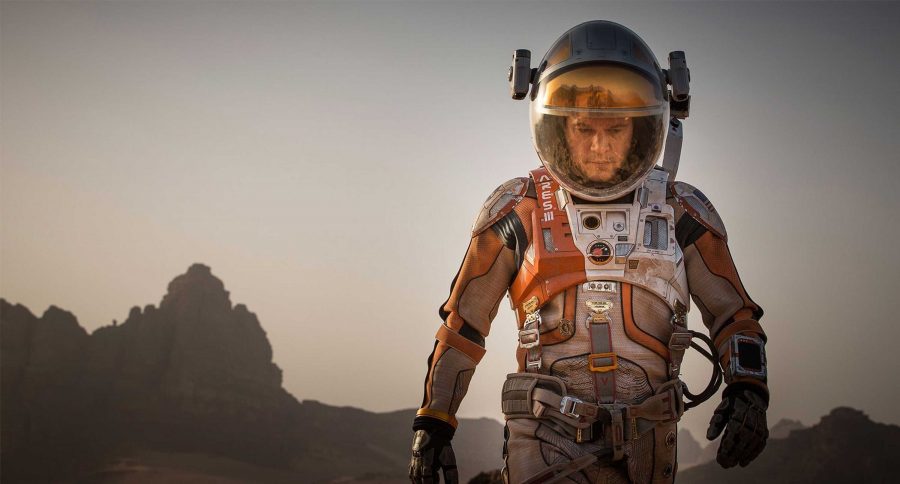Space may be an empty void, but that doesn’t mean films about space have to be.
“The Martian” launched into theatres with a staggering opening gross of over $54 million, and has been orbiting the top of the box office since its release. This could be because of its impressive cast — which includes Kristen Wiig, Jeff Daniels, Donald Glover and Matt Damon — but what’s more notable is the film’s fresh take on space.
Who would have thought that Ridley Scott, the mind behind broodingly violent space flicks like “Alien” and “Prometheus” would take a left turn and make a light-hearted space adventure? Though “The Martian” maintains the beautiful visuals and atmosphere of his previous works, Scott weaves humor between intense and thrilling suspense sequences.
The film is based on Andy Weir’s 2011 novel of the same name, and follows NASA astronaut and botanist Mark Watney (Damon). When a martian storm sweeps over the landing site of their ship, Ares III, and incapacitates Mark, his crew is forced to leave Mars and return to Earth without him — leaving Mark to survive by his wits alone.
I wasn’t expecting much when the lights in the theater dimmed — I sat through the latest drama-heavy space blockbusters, “Gravity” and “Interstellar,” and was tired of the helplessness portrayed in each. But the reliance on plausible technology and methods of rescue was a breath of fresh air, especially for a Ridley Scott project. While this film is characterized as science fiction, the science that takes place seems infallible. It eliminates the distraction of silly and unoriginal notions of space travel and technology.
Mark, using his expert knowledge of botany, creates his own fertilizer and water chamber to grow potatoes to last the 4+ years it would take for a rescue to arrive. Glover’s character, a genius astrodynamicist by the name of Rich Purnell, discovers a simple way to send Ares III back to Mars without having to land — by using the gravitational pull of Earth to send the ship back on its course to Mark. While Neil deGrasse Tyson might have some objections, the plot is simple enough for the audience to follow along — the anti-“Interstellar.”
The chemistry between the secondary characters deserves attention as well, and so do their individual performances. Daniels, a well-known comedy actor, didn’t let his reputation outshine him — he delivered the role of NASA President Teddy Sanders with all the intensity expected of a man in his position.
Jessica Chastain also shined as Captain Melissa Lewis of the Ares III. She displayed heartbreaking guilt when giving the order to leave Mars and utter dedication when the possibility of a rescue arose.
The interactions between Teddy, Melissa and Mark seemed to flow naturally, as if — instead of a script — they were experiencing the events in real time. The conversations between Mark and the Ares III, for example, were organically calm despite the life-or-death stakes — more like actual, professional astronauts than Hollywood actors.
Mark faces numerous setbacks while waiting for his rescue — the only times Damon shows frustration in an amazingly believable performance, certainly one of his best. We felt his pride as he gallivanted around his newly budding crops, saying, “I’m the greatest botanist on this planet,” and his devastation when a busted airlock sucked the life from the same plants. Despite this, he remained light-hearted — always joking about his fate and death, which is a huge contrast between the film and its darker, less enjoyable counterparts.
Scott has found a winning formula in mixing space’s gravity with humor, particularly in Damon. In a time when Hollywood is oversaturated with math problems and space cowboys, “The Martian” brings the genre down to Earth.


